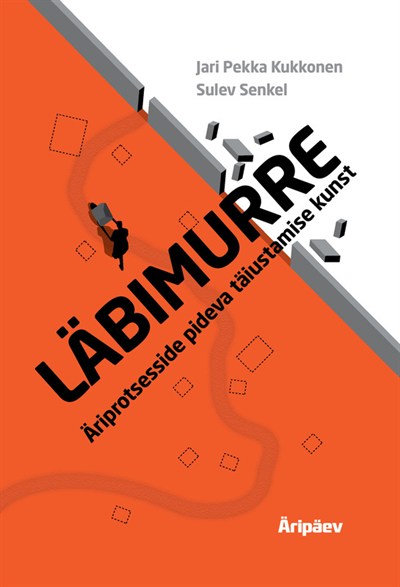
Leadership skills – A quotation from the book Breakthrough (Läbimurre, Jari Kukkonen and Sulev Senkel 2012):
„Daniel Goleman studied successful people and found out that there was some factor even more important than IQ driving the success of these people. These people had empathy, social skills, self-regulation, self-awareness and motivation. These characteristics and skills Goleman called Emotional Intelligence (EQ). Goleman’s studies show that different from IQ it is possible to substantially develop one’s EQ during the course of life. Goleman claims that a good leader has high emotional intelligence.
Here you have 12 questions for evaluating your or your team’s emotional intelligence, strengths and areas for improvement:
1. How easy it is to understand the other people’s standpoints?
2. How easy can you understand other people’s feelings?
3. Can you make friends easily?
4. Are you ready to express your feelings?
5. Are you good in solving conflicts?
6. How well can you adapt your behaviour in changing circumstances?
7. Does your behaviour cause warm feelings towards you from the other people?
8. Are you aware about the image other people get about you (even when they do not show any reaction)?
9. How well can you manage confusing situations?
10. How well you get along with people and situations when they ask something about your private life?
11. When you need help can you find somebody to help you?
12. Is it customary for you to self-reflect your own behaviour?
Pentti Sydänmaalakka is a management scientist, who has studied what kind of leaders the intelligent organisations need today. He brings out four main competency categories:
1) Social competences,
2) Leadership competences,
3) Mental and physical well-being,
4) Efficiency.
Social competences express themselves in how the leader communicates and creates relationships. A leader with good social competences can establish his or her stand of point without being too aggressive or too unassertive. The leader has empathy understanding other people’s feelings and what kind of feelings he or she awakes in others. He or she is caring and human. Humanity can be evaluated on how she or he deals with people who do not have any straight beneficial meaning to the leader. Being a good communicator and knowing that virtually none of the achievements are ONLY his/her achievement he/she uses more word “us” than “I”. Beneficial approach is Robert Greanleaf’s Servant Leadership – being servant to the subordinates and other stake holders.
Leadership Competences express themselves when leader is empowering and motivating people for achieving common goals.. Leader is able to create and discover inspiring visions. He/she is able to make necessary changes and people around him/her are willing to co-operate during the changes.
The base for a good leader is mental and physical well-being. The leader knows his limits and he/she can distribute and recharge his/her energy skilfully. He/she can manage his state of mind according to the situation. A good leader can keep his/her social relationships in balance.
Efficiency expresses itself in leader’s goal attainment and how well she/he manages his/her resources in reaching the goals. The leader keeps the whole in mind (has holistic view), has analytical capabilities and can manage his/her time well.”